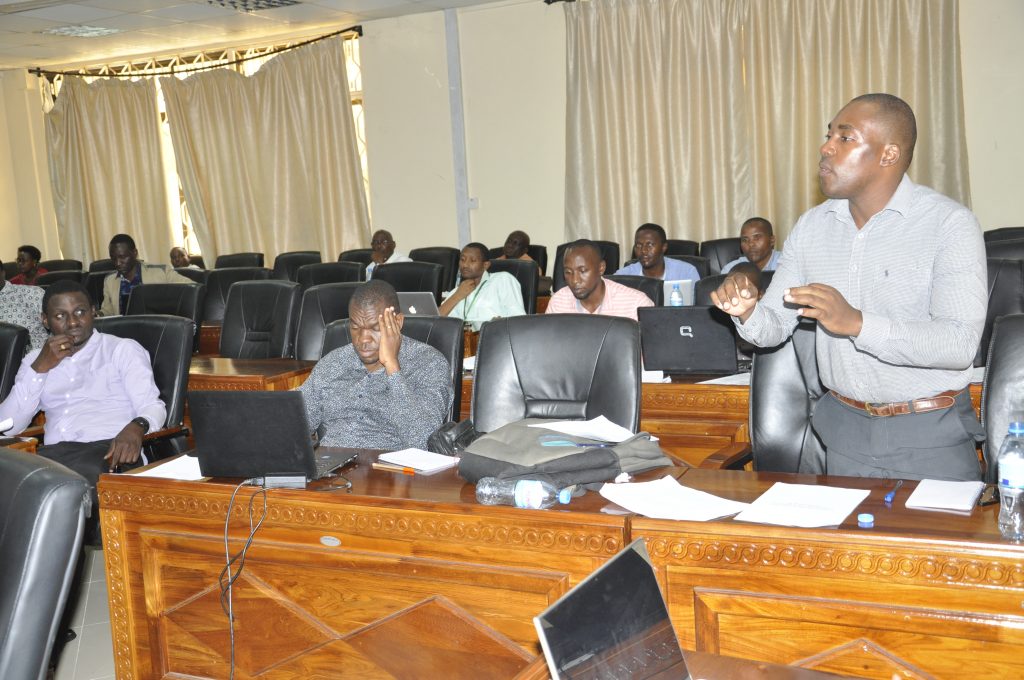Tanzania Implements AWaRe Classification to Improve the Use of Antibiotics by Clinicians
A situational analysis conducted by Global Antimicrobial Resistance Partnership (GARP) in 2015 revealed inappropriate antimicrobial use in Tanzania. GARP found that physicians and other healthcare workers often prescribe antibiotics without fully establishing the need. Some drug outlets, especially in the country’s rural areas, dispense antibiotics without prescription or dispense incomplete doses, fueling the challenge of antimicrobial resistance (AMR) in the country.
Antimicrobial resistance is a rapidly emerging global public health crisis. The World Health Organization (WHO) developed and published a global action plan on AMR in response. To help implement this plan and optimize antimicrobial use, WHO published a new approach in 2017 that classifies antibiotics into three main groups: the Access, Watch, and Reserve (AWaRe) categories. Countries are advised to implement this approach based on epidemiological data and resistance and sensitivity patterns of prevalent germs.
The USAID Medicines, Technologies, and Pharmaceutical Services (MTaPS) program worked with Tanzania’s Ministry of Health, Community Development, Gender, Elders and Children to implement the WHO AWaRe categorization as a model to classify the antibiotics registered for use, using a methodological process for the first time in the country.
In 2017, Tanzania had attempted to classify antibiotics according to the level of health facilities, where class A or ‘Access’ antibiotics would be prescribed and dispensed at all levels; class B or ‘Watch’ group would only be prescribed and dispensed from council hospitals; and class S or ‘Reserve’ group would consist of protected and prioritized antibiotics for use only at tertiary level, i.e., national, zonal, referral, and specialized hospitals. However, since the classification was not based on epidemiological data and resistance and sensitivity of prevalent germs to antibiotics—locally or in neighboring countries—it had posed a challenge to clinicians who prescribe antibiotics without clear evidence of their effectiveness relative to local sensitivity data.
The new categorized antibiotics list will be an integral part of the country’s revised Standard Treatment Guidelines and National Essential Medicines List (EML). The categorization of antibiotics is critical to restrict their use in clinical settings and in the community and will contribute to reducing the pressure on the Watch antibiotics, while retaining the effectiveness of the Reserved antibiotics. The implementation of AWaRE categorization will also help build the Ministry’s capacity and the National Medicines and Therapeutic Committee’s (NMTC) on AWaRe.
MTaPS’ Approach
After preliminary desk review and expert consultations, MTaPS organized two workshops between August and September 2020 toward classifying the antibiotics registered and making the classification functional in policies and guidelines. The first workshop convened a range of stakeholders, including experts from health research institutions, national tertiary hospitals, members of the NMTC, and representatives from President’s Office – Regional Administration and Local Government and the National Reference Laboratory. This workshop produced a preliminary draft of the list of antibiotics classified into AWaRe groups, as per the identified list of infectious diseases and syndromes.

Dr. Brycesson Kiwellu, practicing orthopedic surgeon and Tanzania Orthpedic Society representative, at the stakeholders’ workshop to classify antibiotics into AWaRe categories.
Photo Credit: Dr. Jackson Ilangali
The second workshop, with participation from specialist doctors from Muhimbili University of Health and Allied Sciences and representatives from regional referral hospitals, NMTC, and national hospitals, built on the outcomes of the first one and developed the AWaRe categorization operationalization strategy to guide implementation and monitoring. The resulting AWaRe categorization of antibiotics was finalized according to the country’s syndrome list and is undergoing review for integration into the Standard Treatment Guidelines.
“We are really thankful to MTaPS project for providing technical and financial support for the activity on AWaRe categorization of antibiotics. We specifically appreciate the technical support extended to us because our knowledge on the subject was limited, and we would have never been able to kick start and implement this activity without their support.” – Ms. Siana Mapunjo, AMR focal person from the Ministry of Health, Community Development, Gender, Elders and Children
What’s Next
MTaPS is working with the Ministry and partners to finalize the list of EML antibiotics classified into AWaRe groups, develop its operationalization strategy, and plan for dissemination of the AWaRe classification under the updated Standard Treatment Guidelines and EML. The program will also support the capacity building of the health facilities’ medicines and therapeutic committees for implementation of AWaRe in their facilities toward optimizing the use of antimicrobials and defeating AMR in Tanzania.